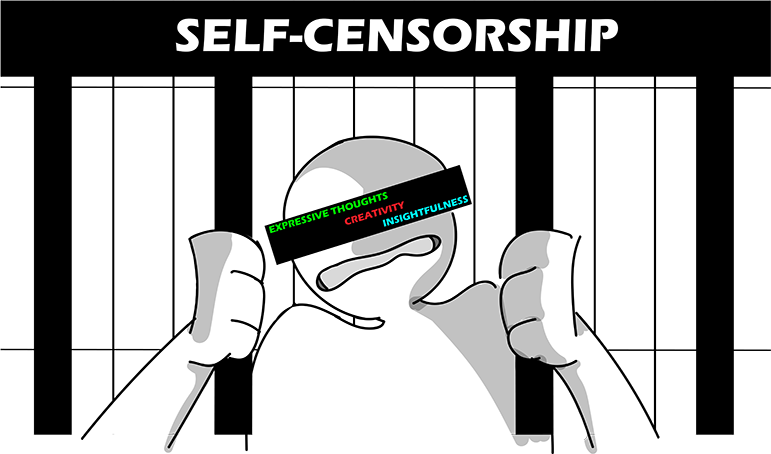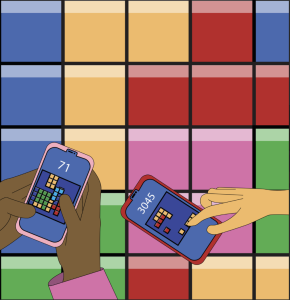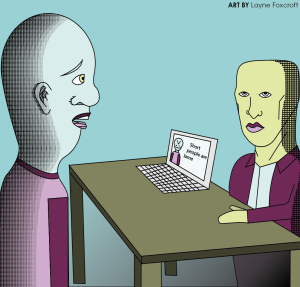Ideacide and you: the guide to avoiding self-censorship
Analyzing how constraining our thoughts serves as a roadblock for creative thinking
October 17, 2018
There is no doubt that every student at Bowie has been affected by the changes introduced this school year, and anyone who puts on an ID or has to walk an extra two minutes because of a newly locked door surely has two cents to add to the conversation. Even though teenagers are known for being over-dramatic at times, there still lies an unconscious tendency in most people to hold back their thoughts and opinions, often referred to as self-censorship.
We should all make an effort to actively note and rethink our hesitations, for freely expressing our thoughts will add different perspectives and have an impact on important issues. At The Dispatch, for example, we make the decision to not self-censor so our fellow students can access truthful information they need to know.
Some people may not know the term self-censorship, but many of us have experienced it at some point in our lives. Basically, it is not saying what we want to say because we think it will not make any difference to the issue or that people of authority won’t care. Self-censorship is very common in high school when we are old enough to have ideas, but not old enough for them to be taken seriously.
While most students are probably not openly intimidated by authority figures in school, the psychological topic of obedience to authority provides explanation on why we tend to censor what we want to say. Ever since we started school, and even in society, we have been taught that respecting adult authority meant not challenging them. If we chose to challenge them, consequences followed and we began to grow cautious of what we said and who we said it to.
A term that goes well with this topic is ideacide. Whether this is a student avoiding a controversial essay topic or being hesitant to voice an unpopular opinion in a class discussion, we have all experienced ideacide. This poses the question of whether or not we have grown cautious of saying certain things in anticipation of backlash.
Ideacide can be classified as fear, because uncertainty is, in some aspects, what may be stopping us from saying things that we want to say. Whether that stems from being overly critical or from an expectation of rejection or change, we miss an opportunity to share our views. By being aware of this self doubt, we can begin to consider whether or not we truly have nothing to say or are just scared of negative reactions.
At The Dispatch, there are times when we take a risk publishing a story that may stir up controversy. While most newspaper readers will only ever see the finished product, producing relevant and informational content can be tricky. We deal with self-censorship every issue but make efforts to move past it in order to uphold the virtue of true journalism and put out the best work possible. In the same way that being on staff fosters free discussion, we encourage the Bowie community to actively engage in discussion on issues that matter to them










